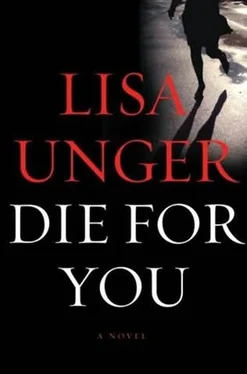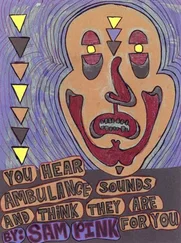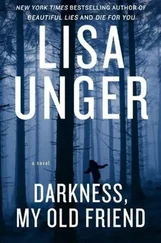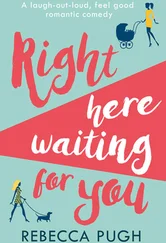I felt all their gazes fall on us as we emerged from the Mercedes and climbed up the stairs. A youngish American couple with an obviously local guide pulling up in a Mercedes caught the attention of the place. I saw some small forms move to the windows above.
“The healthy Czech and Ukrainian infants go right away,” said our guide, Ales, in his perfect English. “But these Romas will be here until their eighteenth birthday. Then-who knows? They’ll deal drugs, become prostitutes.”
“Romas?” asked Jack.
Ales couldn’t hide his disdain, though he seemed to try to keep his tone neutral. “Gypsies. They cause a lot of problems here politically, economically.”
Marcus had told me about the hatred in Czech for the Romas, the terrible crimes that were committed against them throughout history and to this day. Even the most liberal, educated Czechs cursed the Romas, considered them only thieves and criminals, addicts, cons, a terrible drain on social systems. I thought of a line from one of Emily’s books, Madeline and the Gypsies: “For gypsies do not like to stay. They only come to go away.” But the Czech government had outlawed their nomadic lifestyle and then was forced to create housing for them, fostering more resentment and hatred from the Romas and the Czechs for different reasons. “A bad situation without end,” Marcus said. “Like so many bad things.”
“Look how they watch you,” said Ales with a sneer. “They think you are like Brad Pitt and Angelina Jolie, come to take one of them home to your mansion in America.”
He was a young man, maybe just in his early twenties. He was pale, with light blond hair and hazel eyes. There was something wolfish about him, with his hunched shoulders and ranging gait. When he smiled, you could see his teeth were sharp and yellow. I didn’t like him, but we were stuck with him for the time being and he did seem to know his way around.
“Did you hear that?” Jack whispered. “He thinks I look like Brad Pitt.” He was trying to be funny but I didn’t have the energy to laugh.
“I hope your car is here when we get back,” said Ales, issuing a throaty laugh that morphed into a smoker’s cough. He had smoked un-apologetically out an open window the whole way here; both Jack and I were too polite to ask him to stop.
I glanced behind me. One of the boys had already left the group and was circling the vehicle while his buddies looked on laughing.
Inside, Ales said something softly in Czech to the young girl at the reception desk. She stood up from her perch, disappeared for a few moments, then returned and uttered a few words. He nodded and ushered us over to a few orange plastic seats.
“I told her you were a journalist doing a story on Czech orphanages. She said someone will come.”
I frowned at him. Not the best tack to take, I thought. Czech orphanages were not exactly the darling of the media. I remembered a recent BBC report that they were still keeping disabled children in “cage beds.” Though I have to admit that in the footage the beds actually looked more like cribs than cages. Still, it was a sensational story that captured world attention.
“Maybe we should just tell them the truth,” I said.
He shook his head. “This is better. You’ll see.”
Minutes turned into nearly an hour and, finally, Ales left us to go chain-smoke on the stairs. Jack had been mostly quiet, tense, barely saying a word all day. We’d been roaming the Czech town I’d visited with Marcus, and other towns in the area, showing pictures and asking questions, receiving only blank stares and shaking heads. Even with the help of our guide, we were treated like interlopers, a nuisance. One woman threw us out of her store.
“She said she doesn’t like Americans,” Ales explained with a sneer. “She thinks you’re all pigs.”
“That’s nice,” said Jack. “Great.”
Ales laughed, finding some humor that eluded us. By the time we’d arrived at the orphanage, I was demoralized and exhausted. By the looks of him, Jack wasn’t feeling much better.
“I wonder what it’s like to grow up in a place like this,” he said when Ales left.
I looked around at the gray institutional walls, the heavy metal doors, the harsh fluorescent lights.
“Lonely,” I said.
A young woman emerged from behind a closed door. Petite and pale, with blond hair pulled back dramatically from her face, she wore strangely garish red lipstick, though her outfit-narrow gray pencil skirt, white oxford button-down, and plain black pumps-was very conservative, professional.
“I’m Gabriela Pavelka, the director here. Can I help you?”
“You speak English,” I said, relieved. I didn’t want to have another conversation through Ales.
“Yes,” she said with a nod. I could tell in the way her shoulders squared that she was proud of this fact. “Are you a journalist?”
“No,” I said, looking back at Ales, who was leaning against a railing talking to a young girl with a tattoo on her face, something tribal looking around the eyes. She was smiling at him, took a cigarette he offered.
“Our guide misunderstood. Is there someplace we can talk?”
“May I ask what this is about? I am not at liberty to discuss anything with the media.”
“It’s about a private donation.”
“We can talk in my office,” she said, moving toward the door that led back into the building. I glanced over at Jack who lifted a hand indicating that he’d stay where he was, then I followed the director. I assumed Jack felt the need to keep his eye on our guide and the rental car, which didn’t seem like such a bad idea.
Gabriela escorted me to a small drab office. The first thing I noticed was a wedding photo-her in white lace, kissing a handsome man with a wide jaw and short-cropped brown hair. Then, a small diamond ring and thin gold band on her slender finger. On her desk: A cup of coffee gone cold. A shiny red BlackBerry. A copy of British Vogue , hastily stuck under stacks of files. There was another picture of her in a frame with a dark-haired child on her hip. I recognized the background as Central Park.
“You’ve been to New York,” I said.
“Yes,” she said. “I was an au pair for three years after college. This is where I learn better English.”
“Your English is excellent,” I told her, meaning it but also playing to her pride in the matter.
“Thank you,” she said, her professional smile suddenly seeming more genuine. “You’re American. From New York?”
“Yes.”
She picked up the picture and gazed at it. “I miss it. I loved it there.”
“Why did you come home?”
“Because too many young people are leaving the Czech Republic and not coming back. If we all leave, what happens to this country? I wanted to do something important with children, so I came here to run this orphanage.” She swept a hand around her.
“It’s important work.”
“Yes,” she said gravely, looking down at the picture for another moment, then returning it to her desk. “Now, the matter you wanted to discuss…”
From my bag, I extracted the copy of the transfer order Detective Crowe had attached to the e-mail, held it in my hand. I stared at it for a moment while she waited.
“Have you ever been lied to?” I asked her. I saw her eyes shoot over to her wedding picture.
“Everyone’s been lied to,” she said with a shrug. “That’s life. People lie.”
I told her what happened to me, leaving out some of the gory details. I saw her inch up in her seat as I spun the tale for her. By the time I was done, she was practically lying on her desk, she had leaned so far forward.
“I’m looking for him now,” I said. “I don’t know if you can help me, but this is the only connection I have.”
Читать дальше












